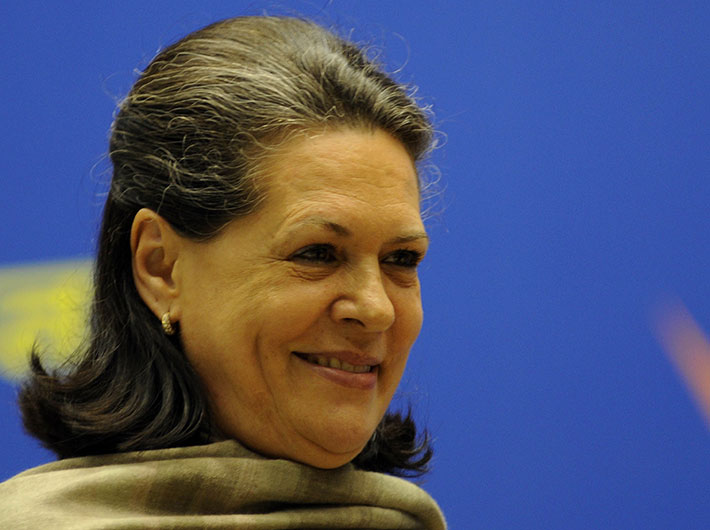A friend has raised a question about selection committees for the appointment of statutory authorities under various laws that require the Leader of the Opposition (LOP) in the Lok Sabha to be a member. With the Indian National Congress's (INC) abysmal performance in the elections some sections of the media are floating the theory of “the 10% rule”, i.e., only such leader will be recognised as LOP if his/her party has at least 10% of seats in the Lok Sabha. This is a canard for reasons given below. But first, the query raised by my friend. Given below is a situation analysis of some laws regarding the appointment of crucial statutory bodies:
Central Information Commission- There will not be any problem in the appointment of the Information Commissioners because in the absence of an LOP in the Lok Sabha, the leader of the single largest party in the Opposition will take that place on the selection committee. So the INC leader in the House will still be a member of the selection committee. Section 12(3) of the Right to Information Act makes this position crystal clear. So the two positions of Information Commissioners advertised by the DoPT can be filled up without any problem.
Central Vigilance Commission- Section 4 of the CVC Act also provides for a similar solution as the RTI Act. So the leader of the largest party in Opposition will sit on the selection committee if no LOP is recognised.
Central Bureau of Investigation and Enforcement Directorate- The appointment of Directors of either organisation does not require the LOP to be a member of the selection committee. So there is no problem there.
National Human Rights Commission: The Protection of Human Rights Act, 1993 does not permit an exception for the LOP if one does not exist at the time of selection of the Chairperson or a Member of the NHRC. However this law as well as other laws mentioned above contain a common provision which states that no appointment shall be challenged in a court of law on the mere ground that there was a vacancy on the selection committee. So appointment of the Chair and the Members of the NHRC can still proceed without an LOP.
Lokpal- Like the NHRC, the selection committee requires the LOP in the Lok Sabha to be a member. There is no exception created like in the RTI Act and the CVC Act. However the provision that no appointment shall be invalid simply because of a vacancy on the selection committee is included in Section 4(2) of The Lokpal and Lokayuktas Act, 2013. So, Lokpal's Chair and members can still be selected without LOP of the Lok Sabha.
How accurate is the claim of the 10% Rule?
Some sections of the print and electronic media have begun saying that there is a 10% rule for any Parliamentary Party's leader to be recognised as the Leader of the Opposition in the Lok Sabha. This, in my humble opinion, is a canard based on shoddy research. Nothing in the Rules of Business of the Lok Sabha contains such a requirement. Readers may check this for themselves by visiting this link: http://164.100.47.132/LssNew/rules/rules.aspx. There is no mention of the Leader of the Opposition in these Rules.
The Salary and Allowances of Leaders of Opposition in Parliament Act, 1977 defines the LOP and explains the procedure for identifying the LOP in both Houses as follows (See: http://mpa.nic.in/actopp.htm)
Definition—In this Act, "Leader of the Opposition", in relation to either House of Parliament, means that member of the Council of States or the House of the People, as the case may be, who is, for the time being, the Leader in that House of the party In opposition to the Government having the greatest numerical strength and recognised as such by the Chairman of the Council of States or the Speaker of the House of the People, as the case may be.
Explanation—Where there are two or more parties in opposition to the Government, in the Council of States or In the House of the People having the same numerical strength, the Chairman of the Council of States or the Speaker of the House of the people, as the case may be, shall, having regard to the status of the parties, recognise any one of the Leaders of such parties as the Leader of the Opposition for the purposes of this section and such recognition shall be final and conclusive."
The Leaders and Chief Whips of Recognised Parties and Groups in Parliament (Facilities) Act, 1998 provides the mechanism for the recognition of leaders of various Parliamentary Parties and Groups (http://mpa.nic.in/actwhip.htm). Nothing in this law either refers to a 10% Rule about recognising the LOP in either House. Further, paras 120-122 of the compilation called: Directions by the Lok Sabha Speaker (8th edn.) reiterate this position without any reference to an LOP. This compilation may be accessed at: http://164.100.47.132/LssNew/direction/direction.aspx
The sum and substance of these provisions is that the Speaker of the LS has the power to recognise the leader of the largest Parliamentary Party in opposition to the Ruling Party as the LOP. The Leader of the Parliamentary Party with the greatest numerical strength will be the LOP in either House. Even if two parties won similar numbers of seats the Speaker would still have the discretion to recognise any one of the Leaders of such parties as the LOP having regard to the status of such parties. This decision is final and conclusive, so it cannot be challenged in any court.
I thank an avid Parliament-watcher for confirming my thoughts on this subject by guiding me to the compilation of the Speaker's Directions. He wishes to remain anonymous. So while "Mr. 10%" may have been an infamous term in one of our neighbouring countries until a few years ago, there is no 10% Rule in our Parliament to the best of my knowledge. Not having an LOP would undermine a very basic feature of the Westminster style of government that we have adopted. In such a form of Government it is absolutely essential that there is a legitimate Opposition to the ruling party in order to stem the tide of majoritarianism. Time alone will tell, who in the INC will don the role of LOP. I hope it will be someone truly capable and farsighted.
All this said, my bigger worry is if the NDA in its wisdom decides to force the members of all such statutory bodies to resign, how much confusion and litigation that would cause. Such examples in our neighbourhood are not uncommon. Academics call this "State Capture" in Bangladesh when the ruling party eases out appointees of the previous government from almost all posts. I hope the NDA will see better sense as its member - the LOP in the 15th Lok Sabha had participated in most of the selection processes till date.



